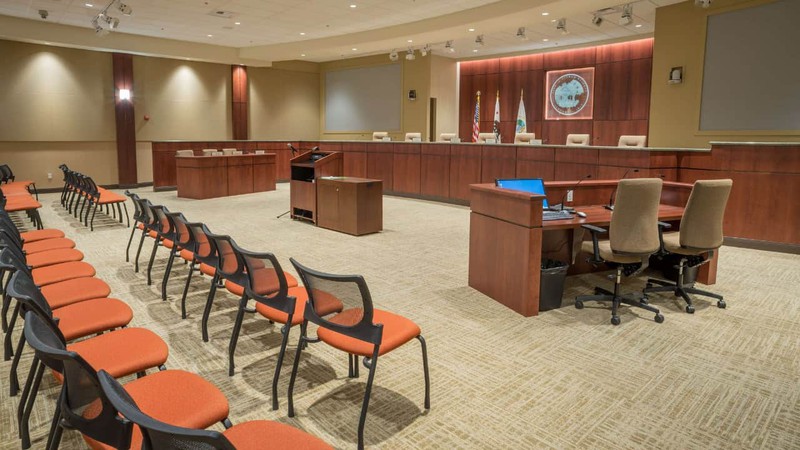What happens if you have a democracy and nobody shows up?

Democracy is all about having a seat at the table. City of Citrus Heights Public Domain
The typical way local elections work is that prospective candidates gather signatures of people who “nominate” them to run for office. Their nomination documents are then filed at the local county clerk’s office, where they are counted and certified, and the certified candidate is then placed on the ballot.
In the last several years it's become common to see news of deadlines being extended for want of candidate filings, and for municipal elections to be canceled for want of candidates.
In the November 2024 election cycle, the filing deadline of August 9 was extended in Placer, Nevada, San Joaquin, San Benito and several other counties and cities. When nobody filed to run against incumbents in the town and city councils of the small municipalities of Los Gatos (pop. 33,529), Saratoga (pop. 31,051), Ripon (pop. 22,000), Colfax (pop. 2,012) and Oakley (45, 347), the elections were canceled and the incumbents appointed to another term.
Why aren’t people running for office?
The number of citizens in a jurisdiction limits the talent pool contributing to the people willing to run for office or otherwise participate in service to the jurisdiction. The recent shift in some municipalities from at-large to district representation adds further limits.
My hometown, the city of Santa Cruz, population 62,000ish, has five people elected to the city council. We’re shifting to district elections, which, as a simple matter of numbers, means that the pool from which any individual council member might be elected has shrunk from 62,000 (at-large) to 12,400 (district). Because Santa Cruz is still transitioning to a district-based council, it remains to be seen how this will impact future elections.
Another factor limiting participation might be the time commitment required by service in elected office, which includes attending council meetings, workshops and other functions as well as assisting constituents when they need help interacting with city government. It’s a job.
City council member pay was recently increased under California law, but it still ain’t much. The majority of elected officials in small or medium sized municipalities have to hold down a “day job" in addition to fulfilling the obligations of their office. Add to this the lack of administrative support and having to go out of pocket on incidental expenses.
Reducing impediments to civic engagement
Jurisdictions are also struggling to fill seats on juries, school boards, fire protection districts, water districts, harbor and airport districts, parks and recreation commissions and the other myriad policy making and advisory bodies that together administer the public weal.
State and local lawmakers have taken note of this trend. There are initiatives underway to make it easier for citizens to participate in government.
The recently enacted California AB1981 addresses the difficulties in finding jurors for civil and criminal trials by substantially increasing travel reimbursements and raising the daily stipend from $15 to $100 in the counties participating in the initial pilot roll-out.
And facing a large number of empty seats on advisory boards, the County of Santa Cruz, followed quickly by the City of Santa Cruz, increased the stipend for meeting attendance to $75. Similar moves are being made throughout the state.
Democracy adapts
The news that elections are being canceled and that governments are finding it difficult to fill volunteer roles is dismaying.
But the overarching theme of the growing awareness of the issues and the developing response remains positive, as the government of, by and for the people adapts to the challenges of public service.
Short articles summarizing reporting by local news sources with linkbacks to the original content.